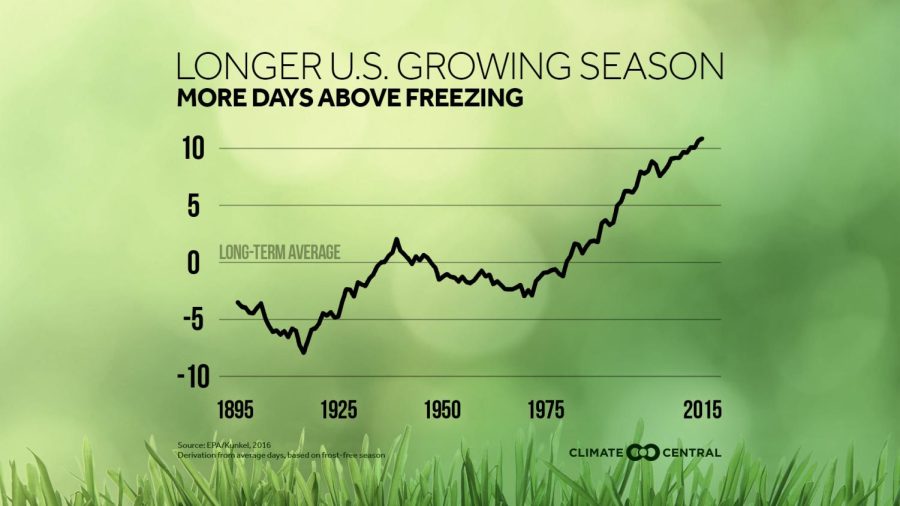Allergy Season’s Early Start
May 11, 2023
Have you noticed that your seasonal allergies are worse than normal, started earlier than normal, and have been ending later than normal? Well, you are not alone. Currently, in the United States around 60 million individuals are affected by seasonal allergies. Over a 28 year study period, researchers have found that there is a 21% increase in pollen concentration throughout North America.
But why?
Well, the answer to this prominent question has a direct correlation to climate change and the prolonged growing season. Currently, in our world, one of the biggest issues we are facing is undoubtedly climate change. One of the major causes of this is the burning of fossil fuels; when this occurs carbon dioxide levels rise, and coincidentally so do temperatures on the planet. Moreover, this increased carbon pollution and hotter temperatures causes plants to produce more pollen.
In the United States, the growing season is approximately 27 days longer than normal because of warm temperatures. This number is also longer than the seasons measured in the Southeast and Northeast. Due to this extended season, the plants have more time to pollinate, which can be very harmful, especially to individuals in the U.S. In 2021, the Centers for Disease Control and Prevention’s data demonstrated how over one in four suffer from seasonal allergies.
Unfortunately, the severe increase in pollen concentration, also leaves those with seasonal allergies facing severe symptoms. Some which include, watery eyes, runny noses, congestion, scratchy throats, itchy eyes, and coughing. But due to the skyrocketing pollen concentrations, symptoms are not limited to those mentioned above. Furthermore, seasonal allergy season also is taking its toll on individuals with asthma.
Lauren Casey, a meteorologist, explained to CNN, “Pollen can also trigger an asthma attack.” This is because of the fast traveling of minute pollen grains that are carried by the wind and are easily inhaled. Moreover, the deeper the particles are inside one’s lungs–the worse the effect.
So, what can people with seasonal allergies do?
Here are list of tips experts have suggested:
- Staying indoors, especially on days that are dry, windy, and in the morning to avoid the high pollen counts.
- Use an air conditioning system in your home to eliminate allergens in the air.
- Keep your home tidy! Vacuuming, mopping the floors, and dusting (with a mask) are all great ways to keep the air in your home allergen-free.
- Purchasing a saline solution is a relieving and inexpensive solution to ease your allergies whether you’re on the go or at home.
But, these are just a few of the countless great expert recommendations that can hopefully help seasonal allergy sufferers mitigate their symptoms amid this warm and high pollen count season.

